What’s fatherhood like for dads today? We find out ahead of Father’s day.
Father’s Day is more widely celebrated now than when it started in the UK around 50 years ago. And that’s because the perception and role of dads have changed, as men play a much bigger part in their child’s life and development.
As Simon Wheeldon from NCT St Neots branch, and dad to Max, 11 weeks, says, “My own dad was brilliant, but I want to be a more hands-on father.”
NCT antenatal teacher Jenny Barratt, who runs couples antenatal and dads-only ‘mantenatal’ classes in Cambridgeshire, says that, increasingly, Simon’s attitude is the norm with many dads becoming involved before their baby is born by coming to antenatal classes and being present at the birth.
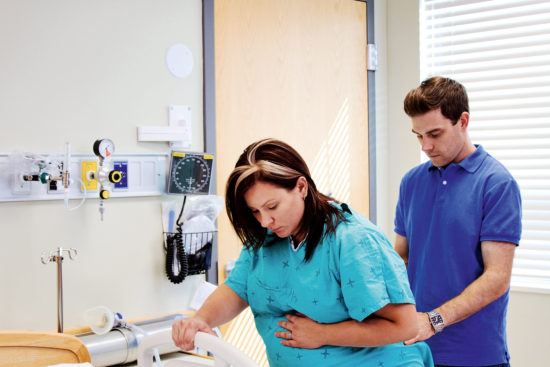
“A lot of their dads weren’t present when they were born but a lot has changed in a generation. Today, it would be unusual for a dad to not be at the birth of their child.”
This is a fantastic step forward and we must support men as they become parents too. “Some dads feel fearful about birth so we talk through what happens in labour and birth and what practical steps they can take to help their partner,” explains Jenny. “It can be really challenging for them watching someone they care about going through something that is hard.”
Of course, birth is only the beginning. Jenny invites new dads to visit her antenatal classes with their babies so they can share their experiences with expectant dads and help them feel them more confident about what lies ahead.
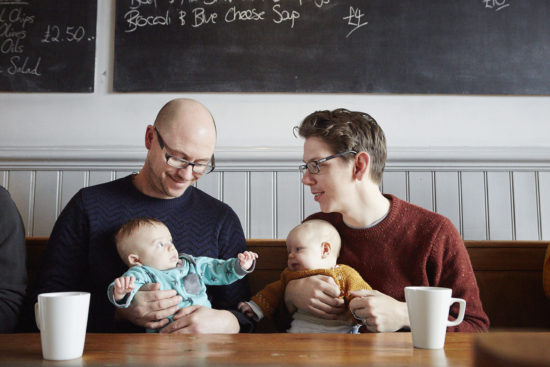
Coping with a lack of sleep is usually the focus of discussions with dads-to-be wondering how they will cope with work and broken nights.
But Jenny says, “The fact that the new dad has got to the class with a tiny baby and is able to have a conversation is very encouraging for expectant dads.”
Getting dads talking about how they’re feeling and coping as a new parent is so important; especially as we know many fathers can also suffer from postnatal depression.
In general, studies have shown that one in 10 dads has PND and fathers also appear to be more likely to suffer from depression three to six months after their baby is born.
Similarly to mums who experience PND, there is no single answer as to why some new dads are affected by depression and not others. Generally, depression is triggered by emotional and stressful events and having a baby can be an unsettling and challenging experience.
Read more about the signs and symptoms of PND among new dads.
Relationships are challenging and even more so with a new baby. It can be hard for new parents to find time for each other. It’s a good idea to think about how you can make time for each other as a couple, and have space as individuals.
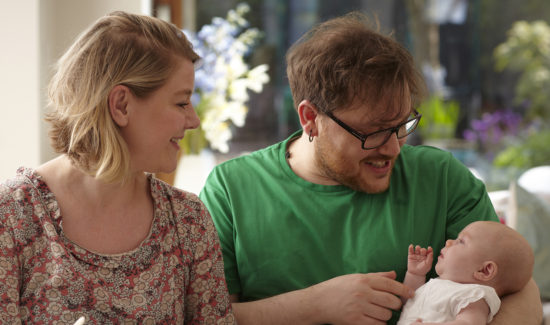
“We try to talk about how things will change when a couple become parents,” says Jenny. “And that includes sex, because for dads, whose libido and body aren’t so affected by birth, that can be quite difficult. Couples need to be open and realistic with each other and keep talking about how they’re feeling and what they need from each other.”
Research from NCT found that while most dads said they had less sex as new parents, 44% felt they had a closer relationship with their partner after having a baby, and a further 19% felt they had a stronger bond with their partner.
It’s interesting to see how parental roles are evolving. While generations ago, dad may have been the breadwinner and mum the home-maker after children came along; today, both parents often play a bit of both.
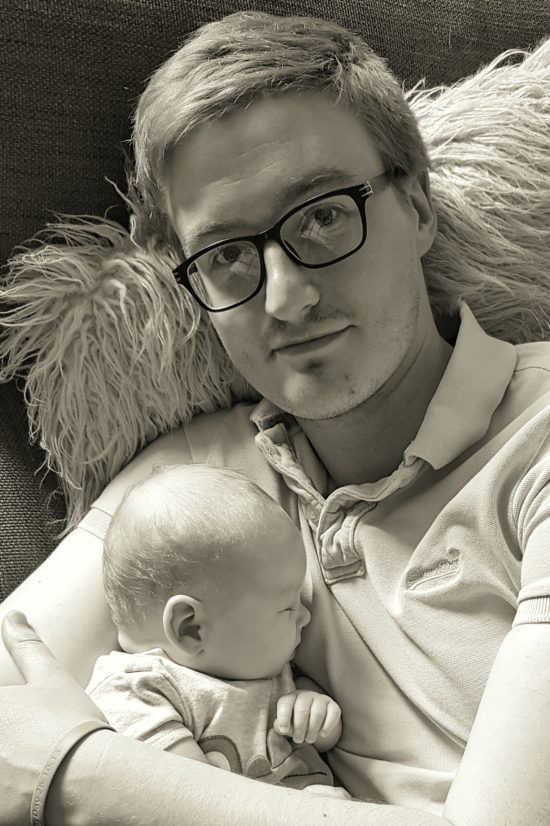
Today, opportunities for dads to get involved in family life are increasing from the start. For example, the introduction in 2014 of Shared Parental Leave (SPL) means dads can spend more time with their new baby.
It may not be for everyone, but the fact that SPL exists is encouraging many dads to think about balancing work and childcare in ways that weren’t possible before.
Simon (pictured with Max) says: “We didn’t realise there was an eight-week notice period for SPL so I took two weeks paternity leave and now my wife and I are swapping over and she is going back to work while I leave my job to care for Max.”
We decided to do this for a few reasons. Financially we are better off if I look after Max and we don’t pay childcare (childcare plus the train to London would pretty much take one of our wages). I also want to spend more time at home and play a greater role in Max’s life. We both want to have as much time with him as possible really.”
People often joke about dads being useless – even though in many cases, dads would love to help more.
Unfortunately, while SPL demonstrates some progress, there is still strong cultural and employment barriers that prevent men pursuing more flexible work practices. Many men report feeling sad about going back to work after paternity leave. Others feel shut out, or that friends and family don’t approve of their choices.
“As dads, it sometimes feels like we can never get it right. It’s assumed we will go back to work but then we are criticised when we do,” says Simon.
I know some people frown on the idea that I am staying at home with Max. And people often joke about dads being useless – even though in many cases, dads would love to help more”.
The role each parent plays will be different for every couple. It can be really helpful to be honest about what family and work balance you both want and then figure out how to make that work together.
The good news is there is more support for dads today than ever before. NCT antenatal courses can help expectant dads find ways to deal with their concerns about becoming a dad, and how they and their partner will cope with issues, such as persistent crying and sleepless nights.
If there isn’t an official dads’ group, NCT antenatal teachers often encourage expectant dads to set up a WhatsApp group or something else on social media to keep in touch and meet up after their babies are born.
There are also dads-only groups where men can socialise with other dads and take part in dad and baby activities.
South East London Dads is an NCT subgroup that offers support to dads in Greenwich, Lewisham and Southwark, while Leeds Dads, offering a support group and social events, is part of NCT Leeds.
NCT York, NCT Taunton and NCT Cardiff and Caerphilly also have dads’ groups. Find out what’s available in your area for dads.
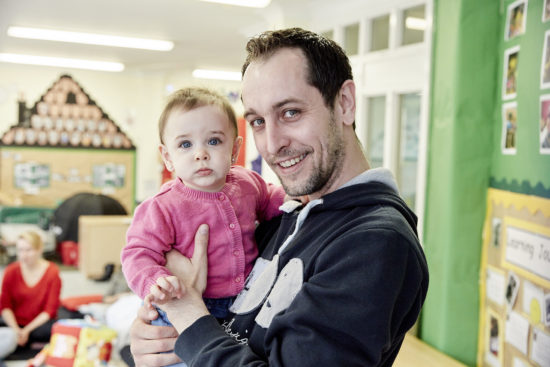
Expectant dads may worry their lives may never be the same again. If this is the case, it can help to talk to new dads who are going through it.
Jenny says: “The new dads who visit my antenatal classes talk quite openly about the difficulties but, without fail, they get to the end and say, ‘but I really want to tell you how fantastic this all is’. The positives definitely outweigh the negatives.”